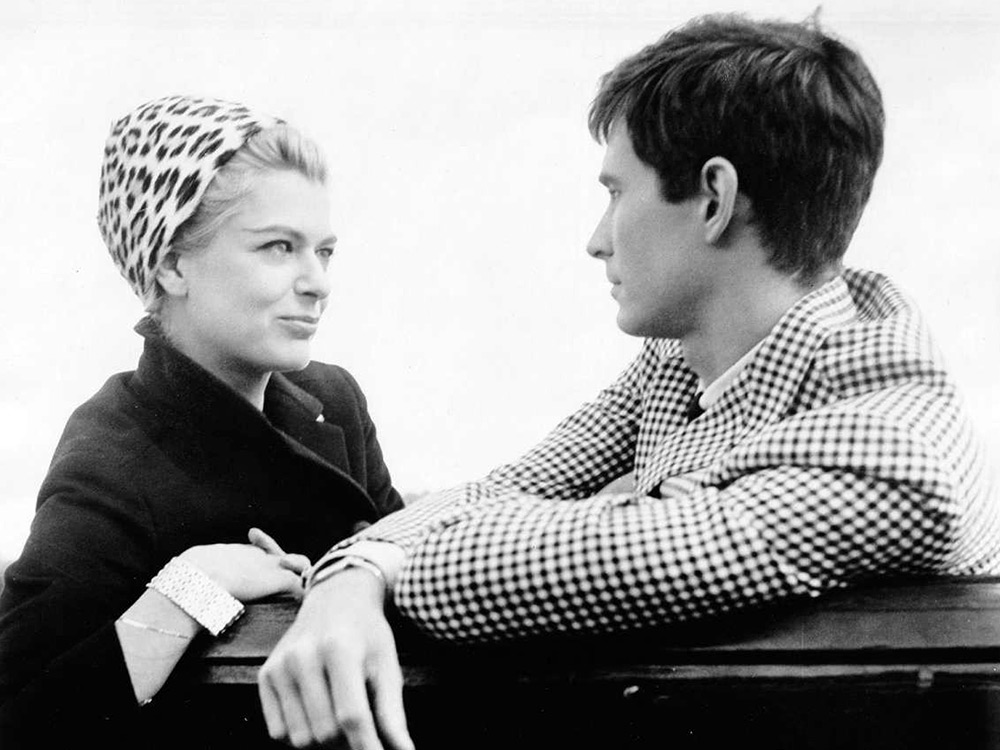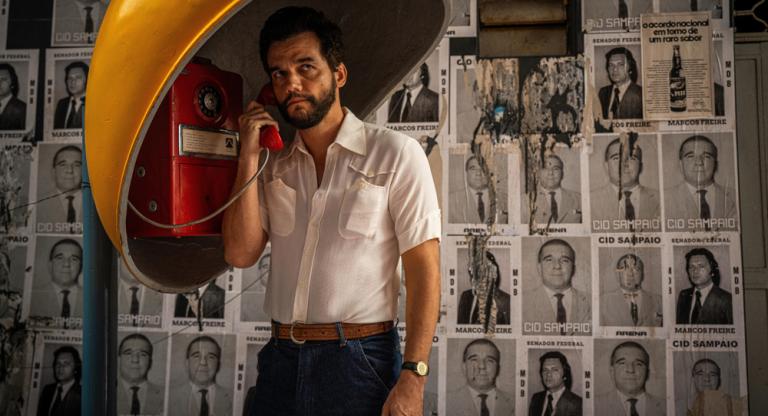Jules Dassin met Melina Mercouri at the 1955 Cannes Film Festival, which was screening her first film, Michael Cacoyannis’s Stella (1955). Their romantic entanglement accompanied their cinematic collaborations, of which Phaedra (1962) is the second, following Never on Sunday (1960). Mercouri’s film presence—her imperial height, her flashing eyes, her wide, expressive mouth—remains undiminished from that earlier spellbinding performance under Cacoyannis, even if Dassin’s direction, always somewhat cautious, does not elevate his love object to the heights of say, Bergman by Rossellini. In fact, it all emanates from her.
Phaedra retells Euripides's Hippolytus, in which Mercouri’s character, wife of shipping magnate Thanos (Raf Vallone), embarks on a forbidden love affair with her husband’s son from a previous marriage, Alexis (Anthony Perkins). Mercouri’s portrayal of a descent from cool, self-assured magnetism into hysterical, tearful fragility is mesmerizing. Her power as a singer is foregrounded, and, with a score by the giant of Greek composition Mikis Theodorakis, the film is worth watching for its soundtrack alone.
Perkins, a mere two years after Psycho (1960), plays in-and-around the lingering associations of that career-defining role. But this time around, his character manages to consummate his mommy issues in a way that, at least, feels relatively healthy in comparison. However, his explosive viciousness toward Phaedra and slightly hammy final scene end up leaving the film with a taste of the soap operatic, rather than the epic and tragic. But the Greek tragedians are hard acts to pay homage to, and Dassin does something interesting with the group of old women, clad in traditional black garb, who frame the film’s narrative and echo the classical chorus. It is one of the ways that instead of just retelling an ancient narrative, Dassin suggests there exists within the film a simultaneity of antiquity and the present. This is also expressed in a scene where Dassin demonstrates his capacity for genuine formal artistry, where meandering shots of the interior and exterior of the British Museum are layered on top of one another. Inside, the camera lingers on a statue of a headless Aphrodite, and cuts back to the doomed Phaedra. This love story, incessantly retold, must necessarily engender an intense sensation of powerlessness in its victims. It is too ancient and too preternatural. Its stream courses relentlessly through and thus renders itself beyond history. The opening shot of the Parthenon marbles, whose figurative narrative friezes prefigure cinema, simultaneously speak to a motionless eternality and the horror of repetition, even if the narrative form might change.
Phaedra screens this evening, July 1, at L’Alliance New York on 35mm as part of the series “Buy Masterpieces.”



